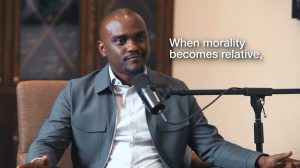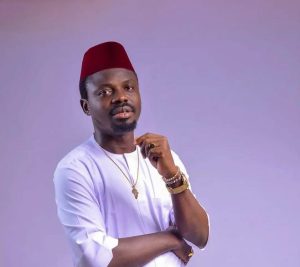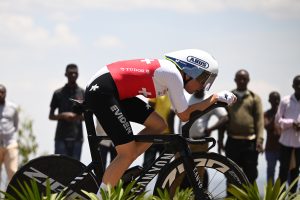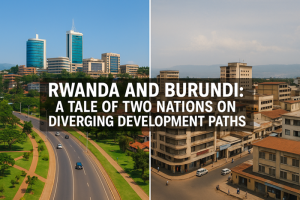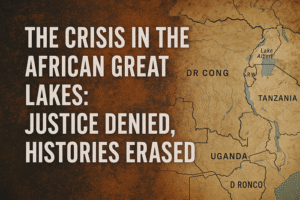The Flame Does Not Die: Raila Odinga and the Architecture of African Memory

By H.E Ambassador Godfrey Madanhire
Amolo Odinga has departed and with his departure, Africa is called not to mourn a man but to celebrate the weight of a legacy. His life was never in pursuit of office. It was a confrontation with injustice. He did not inherit a powerful name. He became its living proof.
He was born into the fire. His father Jaramogi Ajuma Oginga Odinga refused to lead a government while Jomo Kenyatta remained in colonial detention. That refusal was not symbolic. It was structural. It declared that freedom without justice is fraud and that leadership without sacrifice is betrayal. Raila did not run from that inheritance. He ran towards it. And when the State turned its prisons into instruments of silence, he answered with six years of unbroken defiance. When the ballot was turned into a blade he stood firm. When the nation bled he offered his hand not to strike but to steady the ship.
He contested five presidential elections. In each, the official tally placed him behind. Yet he never lost the people. He never lost the moment. He never lost the memory of what Kenya could be. He was not a visitor to the marginalised. He was their voice. He was not a guest in the struggle. He was its architect. His name became a verb. To Raila was to resist. To Raila was to rise. To Raila was to remember.
He did not merely support the 2010 Constitution. He midwifed it. It was not a document born of convenience but of confrontation. For decades Kenya had operated under a colonial skeleton dressed in post-independence rhetoric. Raila Odinga understood that true liberation required structural surgery. The new
Constitution reimagined the state from the ground up. It decentralised power through devolution, fortified the judiciary and enshrined civil liberties that had long been denied. It was the first time Kenya’s governance reflected its geography, its diversity and its wounds. Raila did not draft every clause but he drove the process. He mobilised the public, negotiated with adversaries and anchored the reform in lived experience. The Constitution was not his victory alone. But without him, it would have remained a theory. With him it became law.
And then came the handshake. A gesture that stunned a nation and silenced cynics. Raila Odinga and Uhuru Kenyatta, two sons of founding fathers, two dynasties forged in rivalry, stood together not as enemies but as elders. It was not a truce. It was a transition. A signal that the age of vendetta had given way to the age of vision. That handshake was not for the cameras. It was for the country. And in that moment Raila ceased to be a candidate. He became a custodian of peace and democracy.
But Raila was never confined within borders. His final act was continental. His recent bid to chair the African Union Commission was not a retirement plan. It was a declaration that Africa’s future must be stewarded by those who have paid the price of principle. He did not win the seat but he won the moment. He reminded the continent that Pan-Africanism is not a slogan. It is a calling and he answered it.

The Odinga name is not his alone. It is a lineage. His brother Dr Oburu Odinga served in Parliament and the East African Legislative Assembly. His children Rosemary, Winnie and Raila Junior have stepped into public life not as heirs to privilege but as stewards of a covenant. Like the Kenyattas the Odingas are a dynasty. But theirs is a dynasty of resistance not entitlement. They did not inherit the state. They interrogated it. They did not govern from above. They bled from below.
Raila Odinga was not a perfect man. He was a necessary one. He made it possible to oppose without apology. He made it honourable to lose with dignity. He made it dangerous to govern without scrutiny. He was the last bulwark of principled opposition in a region where dissent is often mistaken for disloyalty. And now as Africa bids farewell, we must ask ourselves whether we are ready to carry what he carried. Not the burden of ambition but the burden of memory.
In African cosmology, the dead are not gone. They become part of the soil, the wind and the memory of the people. Raila Odinga now joins that sacred council not as a man who failed to become president but as one who redefined what it means to lead. The flame his father lit did not die with him. It has been passed to us. And it demands not mourning but to rile up a Raila movement. Not tribute but transformation. Not silence but struggle.
The struggle continues and so does the legacy.
Authored by His Excellency Ambassador Godfrey Madanhire, Diplomatic Envoy of the State of the African Diaspora, Chief Operations Officer, Radio54 African Panorama, Pan-Africanist and Advocate for Sovereign African Governance.

SUBSCRIBE TO OUR NEWSLETTER

